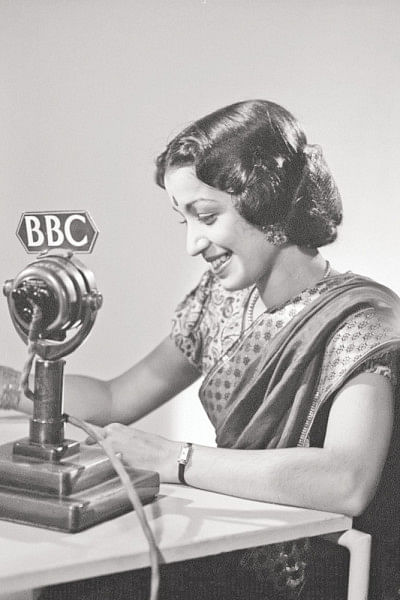The digital future is now

When, within hours of the July 1 attack at the Holey Artisan Bakery in Dhaka's plush suburb of Gulshan, the authorities suspended live television broadcasts to prevent reporters from inadvertently giving away movement of security forces, the BBC Bangla website and social-media channels saw a major spike in traffic. People switched to digital sources, and late into the night, more than 75,000 users were active on our Facebook page. Over the next day, as the details of the massacre inside the restaurant became clear, more than half a million visitors came to bbcbangla.com for updates. Once again in the service's 75-year history, audiences came to us as a trusted source for news in an extraordinary time.
The BBC's Bengali service (as it was known then) was launched at the height of the Second World War, when the Bengali-speaking region of eastern India was under British rule and perilously close to the advancing Japanese army. The first programme, broadcast on 11 October 1941, carried a 'talk' written by George Orwell (under his real name of Eric Blair).
As the Bengali service brought its audiences news from around the world, it set standards for broadcasting and presentation in the Bengali language and the quality of radio dramas. World developments, in their turn, shaped up the service itself as the creation of Pakistan out of India's western and eastern regions led to the launch of two separate strands of the BBC's Bengali programme.
The two strands were brought together in 1969, through the launch of a new programme called 'Probaho'. That name – which means 'flow' - was destined to become the BBC's most-enduring brand among Bengali audiences. In 2015, we added the weekly TV programme, BBC Probaho, to our radio, digital and mobile content.
The biggest challenge faced by the Bengali service came in 1971 when the Pakistan army launched a ferocious crackdown on Bengali nationalists campaigning for independence of what was then East Pakistan. The BBC became a lifeline service for millions of people inside East Pakistan and in refugee camps dotted along the border on the Indian side.
The BBC brought the news of the war and atrocities to its Bengali-speaking audiences – and to wider, global audiences. For the Bengali service staff, who had originated in East Pakistan, maintaining impartiality and objectivity in reporting became a struggle. But impartial coverage was maintained meticulously and earned the respect and trust of the audience. Nineteen seventy-one was a watershed year, when BBC Bangla and its journalists became household names in what became a new country, Bangladesh. Memory of that year and the dramatic years to come, passed down the generations, still determines the huge respect and affection in which BBC Bangla is held in that part of the world.
The Bengali service has come a long way since those days of radio, when deep-voiced presenters read the news and hosted talk shows that delved into the world of high culture. While radio continues to form a strong part in the service's overall offer to its audiences - in Bangladesh, parts of eastern India and Arab Gulf states, particularly Saudi Arabia and the United Arab Emirates - the content, style and formats have evolved. Original journalism is now what drives the BBC Bangla's output, with a lot more news content from the region, particularly Bangladesh, more stories generated by our own correspondents. Our programmes are pacier, the language and tone is less formal – and hopefully more appealing to younger audiences.
If the changes that kicked off in the mid-1990s were about content and style, then the changes unfolding now encompass far greater areas. Technology is driving this evolution, forged by changing habits of the new generation of news consumers. BBC Bangla is now firmly on a course to move to a fully digital future.
Digital has become the platform of choice among many followers of BBC Bangla around the world. BBC Bangla's Facebook page now has around nine million followers. While most of them are from Bangladesh and India, the output is also popular among expatriate Bangladeshis and Bengali-speakers. Many of them are in the Gulf region: more than half a million followers of BBC Bangla on Facebook are in Saudi Arabia and the United Arab Emirates. Oman, Qatar, Kuwait and Bahrain are among the top ten countries – and Riyadh, Dubai, Jeddah and Doha are among key cities - from where Bengali-speakers engage with us.
While radio remains a source of serious news, analyses and debates, the shift to digital is gathering inexorable momentum. There is a huge appetite among our young audiences for news, and digital is their preferred platform. BBC Bangla's ambition is to be an integral part of their news day, offering this new generation of news consumers' access to world-class news and information, and a great opportunity to engage and to share their own views and stories. This is already happening.
The writer is head of the BBC World Service's Bengali service.

 For all latest news, follow The Daily Star's Google News channel.
For all latest news, follow The Daily Star's Google News channel. 



Comments